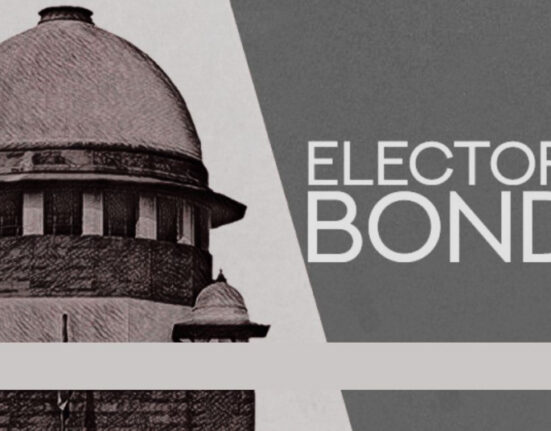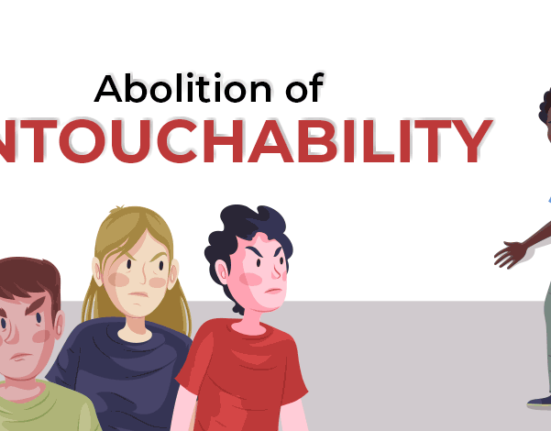Introduction
The concept of a Uniform Civil Code (UCC) has been a subject of debate and discussion over a long period of time in India. It pertains to the idea of having a common set of civil laws that would apply to all citizens irrespective of their religion, ethnicity, or cultural background like uniformity in the codification of Indian law, relating to crimes, evidence, and contract.
In India, personal laws govern matters such as marriage, divorce, inheritance, and adoption, and these laws are based on religious or community-specific practices. This creates a situation where different religious communities have their own distinct legal frameworks, leading to discrepancies in the treatment of individuals belonging to different communities.
The UCC seeks to address these discrepancies by providing a uniform legal framework that upholds fundamental rights and guarantees equal treatment to all citizens.
Background
The idea of a UCC is not new and has historical roots in various legal systems. Countries like France, Germany, and Japan have implemented uniform civil codes, while others have attempted or considered the adoption of such a code.
In India, the topic of a UCC has been a matter of intense debate and controversy due to its diverse religious and cultural landscape. During the British Raj, the authorities initially formulated personal laws for Hindu and Muslim citizens. However, due to concerns over opposition from community leaders, the British administration refrained from further interference in these domestic matters.
Origin of UCC
During the 1930s, the All India Women’s Conference advocated for equal rights for women, regardless of their religious background, in matters concerning family law such as marriage and divorce.
In 1950, when the Indian Constitution came into effect, it included a provision stating that the State would strive to establish a Uniform Civil Code (UCC) to ensure equal treatment for all citizens. The objective was to replace the existing religion-based laws.
However, in the 1950s, the Nehru government faced resistance but proceeded to codify and reform several Hindu personal laws, despite facing backlash. These reforms aimed to provide basic rights to Hindu women.
UCC in the Constitution
In Part 4 of the Constitution, the Directive Principles of State Policy (DPSP) figure from Articles 36 to 51. And Article 44 is the one that talks about a Uniform Civil Code. According to this article, the Constitution states that a uniform civil law should make for all the citizens of the country. Here, it is important to note that the Directive Principles are ideal principles that encourage governments and citizens to follow them but are not mandatory.
Also, Directive Principles are not “enforceable” in a court of law. Considered an ideal state of political governance, it is believed that if the state policy follows the Directive Principles, then public welfare and social harmony will increase. To make the Directive Principles “enforceable” in a court of law, the government needs to legislate on the DPSP articles separately. Sometimes Directive Principles can also clash with Fundamental Rights.
The Concept of Uniform Civil Code
The Uniform Civil Code (UCC) has the objective of safeguarding vulnerable sections, as envisioned by Ambedkar, which includes women and religious minorities, while also promoting unity. When enacted the UCC will streamline the existing segregated laws based on religious beliefs, such as the Hindu Code Bill and Shariat law. It will simplify the intricate legal frameworks concerning marriage ceremonies, inheritance, succession, and adoptions, making them uniform for everyone. Consequently, the same civil law will be applicable to all citizens, irrespective of their faith.
The aim of a UCC is to promote equality, social justice, and harmony by ensuring that personal laws based on religious or customary practices do not supersede fundamental rights and principles of justice
Previous Attempts and Debates
The issue of the uniform civil code became a contentious matter in Indian politics in 1985, primarily due to the Shah Bano case. The Supreme Court ruled that Shah Bano, a Muslim woman, was entitled to receive alimony from her former spouse under the “maintenance of wives, children, and parents” provision (Section 125) of the All India Criminal Code, which applied to all citizens irrespective of religion. Further, in its judgment, the court also highlighted the need for a Uniform Civil Code in the country. However, this judgment was later on overruled by then Prime Minister Rajiv Gandhi with the effect of legislation.
Arguments in Favor of the Uniform Civil Code
Equality and Gender Justice: A Uniform Civil Code promotes equality and gender justice by ensuring equal rights for women across religious boundaries, and eliminating discriminatory practices prevalent in personal laws.
Social Cohesion and National Integration: Implementing a UCC fosters social cohesion and national integration by treating all citizens equally under a common civil law, promoting a shared sense of citizenship and unity among diverse communities.
Simplification and Uniformity of Laws: A UCC simplifies the legal framework by replacing multiple sets of complex and varied personal laws with a single comprehensive code, reducing confusion and ensuring uniformity in civil matters for all citizens.
Protection of Individual Rights: A UCC prioritizes individual rights over religious considerations, strengthening the fundamental rights guaranteed by the constitution and protecting individuals from the potential infringement of their rights under discriminatory personal laws.
Secularism and Secular Governance: Implementing a UCC upholds the principle of secularism by establishing a clear separation between religion and state in civil matters, ensuring that laws are based on rational and non-discriminatory principles rather than religious mandates.
Challenges and Opposition to the Uniform Civil Code
Religious and Cultural Resistance: One of the major challenges to the UCC is opposition from religious and cultural groups who perceive it as an infringement on their religious rights and autonomy. It is argued that personal laws are deeply rooted in religious traditions and should be respected as a matter of individual freedom.
Minority Rights Concerns: Implementing a UCC might disproportionately affect religious minority communities with specific personal laws, fearing that it could erode their cultural identity and lead to assimilation rather than accommodating diversity.
Complex Implementation: Harmonizing diverse personal laws, addressing conflicts between religious practices, and managing a smooth transition from existing legal frameworks pose significant implementation challenges.
Public Opinion and Perception: Public opinion on the UCC varies, and strong sentiments associated with religious and cultural identity make it difficult to garner widespread support for a uniform code.
Legal and Constitutional Hurdles: Ensuring compliance with constitutional provisions and fundamental rights, as well as addressing potential conflicts and legal amendments, presents legal and constitutional hurdles to implementing a UCC.
Balancing Equality and Cultural Pluralism: Achieving a balance between ensuring equality and preserving cultural pluralism is a delicate task. While the UCC aims to provide equal rights and justice, it must also respect and accommodate diverse cultural and religious practices, requiring a nuanced approach.
Case Laws Related to UCC
Shah Bano case of 1985:
In this case, the husband divorced a 73-year-old woman named Shah Bano using triple talaq and denied her maintenance. She approached the courts, and eventually, the Supreme Court ruled in her favor, invoking the “maintenance of wives, children, and parents” provision (Section 125) of the All India Criminal Code. The Supreme Court recommended the establishment of a uniform civil code.
Daniel Latifi case:
The Muslim Women’s Act was challenged for violating the right to equality and the right to life. The Supreme Court deemed the law constitutional but harmonized it with section 125 of the Code of Criminal Procedure. It ensured that a divorced Muslim woman is entitled to maintenance during the iddat period.
Sarla Mudgal case:
The court addressed the question of whether a Hindu husband who embraces Islam can solemnize a second marriage. The court ruled that a Hindu marriage solemnized under Hindu law cannot be dissolved solely by conversion to Islam and a second marriage after conversion would be an offense under the Indian Penal Code.
Conclusion
In conclusion, the Uniform Civil Code (UCC) is a complex and contentious issue that requires careful consideration and deliberation. While it aims to promote equality, justice, and social cohesion by providing a uniform legal framework, it must also respect the diverse cultural and religious practices of Indian society. Balancing individual rights, minority protections, and national unity is crucial in shaping the implementation of a UCC. Dialogue and consensus-building among stakeholders, including religious and community leaders, legal experts, and policymakers, are essential to address the challenges and concerns surrounding the UCC. Ultimately, any decision regarding the UCC should prioritize the principles of equality, dignity, and fundamental rights, while ensuring the preservation of religious freedom and cultural pluralism in India’s diverse society.
Also Read: Evolution & Hierarchy of Courts in India, Click Here!
![]()







Leave feedback about this